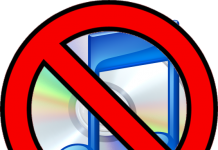 Here is an interesting reversal: rather than a Slashdot link pointing to a story elsewhere, this TechDirt story actually points to a thought-provoking Slashdot comment. The entire comment is worth reading as it goes into detail beyond the points I summarize here.
Here is an interesting reversal: rather than a Slashdot link pointing to a story elsewhere, this TechDirt story actually points to a thought-provoking Slashdot comment. The entire comment is worth reading as it goes into detail beyond the points I summarize here.
Amidst a Slashdot discussion about the ACTA copyright treaty that is being plotted in secret despite numerous demands for more openness, Slashdot user “girlintraining” addresses the copyright issues that have been affecting movies, music—and, yes, e-books.
girlintraining talks about the rejection of the traditional copyright system by an entire generation, and about how this new movement has evolved more or less spontaneously anywhere the Internet is able to reach.
There are no real leaders for the digital culture, yet the culture is there. This is unprecidented. There are very, very few social movements that organize around principals instead of individuals who exemplify those ideals. Whether you live in Iran or America, Africa or Europe, the same values systems are spontaniously developing in reaction to exposure to the digital environment. And while the state of the art has advanced at an incredible rate, our methods of understanding and interacting within the new social spaces created by that aren’t changing that much. It’s a stable environment evolving at rate sufficiently slow to allow culture to form.
That, in and of itself, is amazing. Forget copyright for a moment and consider all the other social advances that are taking place because of our digital interconnectedness — and then realize that there are only a very few friction points in this revolution! That is also unprecidented in modern history.
She goes on to suggest that we are experiencing a “copyright bubble” right now, that will eventually burst just as the dot-com and housing bubbles did. Copyright is an artificial construct designed to restrict the flow of information, whereas the digital culture means information is only going to become easier to replicate.
Which is exactly why, right now, governments around the world are drafting a copyright treaty between themselves in secret. They know that as soon as the lesser-developed countries have come forward a bit more infrastructurally, they’ll be at a point where they can leverage a free flow of history, ideas, and information to dramatically improve their economies. Just as plans for the machinery that powered the industrial revolution was witheld from countries that didn’t have it, so too have the tools to begin the information revolution been witheld.
The entire comment is worth reading. Although she does quote the tired old “information wants to be free” mantra, girlintraining makes some interesting points that go beyond its usual discussion.
Though as one “Anonymous Coward” points out in response:
An interesting bit of prose…except for one problem. People are buying and consuming, even if illegal, what the big media generates. We can talk all we want about revolutions and seed sowing, but the reality is that the public at large is still addicted to mass media content. It’s kind of hard, historically or otherwise to call that a failure. Regardless of what laws they get passed, they will only be considered failures when the public at large stops consuming in whatever form their content takes.
The Perception of Prevalent Piracy
All this talk about a new digital culture versus copyright puts me in mind of something else I’ve seen lately: a perception that Internet e-book piracy is suddenly skyrocketing. Just last night at a local bloggers’ meeting, a friend asked me if it was true.
As I told him, as far as I have been able to tell, e-book piracy is about the same as it always has been: ever since the advent of peer-to-peer (and perhaps even before), you have always been able to find vast bundles of illicit e-books on-line, if you just look for them.
Before 2009, not many people really cared—after all, “nobody wants to read off a screen.” But then came the Kindle and its ilk, and now huge business concerns are moving into the e-book frontier. Suddenly the frontier’s “lawlessness” is attracting public notice.
Requiem for the “Mp3warez” Scene
I seem to recall it was much the same way with mp3 music and digital players: for a short while between the invention of the mp3 and the marketing of portable devices that played it, illicit “mp3warez” websites were all over the place.
These were ad-banner-and-pop-up-filled websites where people could download mp3s if they could figure out how to get through the sites’ often remarkably obfuscated navigation. (And before that there were FTP sites for music, though almost nobody these days even remembers them.)
There were even personal spider software packages to trawl the web for mp3s and index them for download. I remember running one of those spiders once, out of curiosity, and being amazed at the sheer number of popular tunes just sitting there for the taking. It was almost as if there was a sort of unspoken agreement between record labels and digital music pirates: as long as mp3s are strictly a geek thing and you don’t get too blatant with them, we won’t come after you.
But as mp3 players came out and more people than just geeks realized how useful they were, suddenly the record labels started paying attention and mp3 “warez” sites up and vanished—a few months later I ran the spider again and found nothing.
A Self-Defeating Victory
Of course, this was a Pyrrhic victory for the record labels, as the disappearance of music sharing from the web directly inspired the creation of Napster—and others looked at Napster and realized that if peer-to-peer worked for music, it could work for other file formats too.
Which is exactly the kind of evolution of culture girlintraining is talking about, come to think of it, when she says, “There are no real leaders for the digital culture, yet the culture is there.” There was no collusion, no shadowy conspiracy to create peer-to-peer—just “monkey see, monkey do.”
 And just a few years later we have the entire BitTorrent ecosystem, with movies leaking within one or two days of their screening if the studios are lucky. Who would ever have thought a studio would claim “victory” in delaying the illicit release of its biggest blockbuster by only 38 hours after its first screening?
And just a few years later we have the entire BitTorrent ecosystem, with movies leaking within one or two days of their screening if the studios are lucky. Who would ever have thought a studio would claim “victory” in delaying the illicit release of its biggest blockbuster by only 38 hours after its first screening?
If girlintraining is right, we are in the middle of a revolution, and secret treaties like ACTA are the losing side’s last-ditch effort to fight back. Considering the history of peer-to-peer, it becomes pretty hard to argue.
Where is the Future Heading?
After originally posting this article, I ran across Bruce Sterling’s “State of the World 2010” at the Well (via BoingBoing), and this fit so well I simply had to add it. Sterling makes the following point:
Most of my Twitter tweeple, in expressing their mild hopes for the decade, seem obscurely terrified. "Well, it couldn’t possibly be any worse than last year," seems to be the consensus notion. I haven’t seen any Scrooge-like spoilsport remarking on the prospect that the twenty-teens could easily be MUCH, MUCH worse than the zeroes. The Depression of the 1930s was followed by the 1940s, right? It’s casino thinking to imagine that the next poker hand is bound to be great just because you lost your ass in the last one.
































